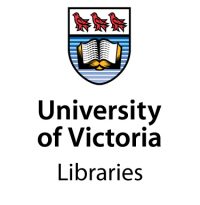Each year UVic faculty, staff, students, alumni, and retirees produce an incredible amount of intellectual content reflecting their breadth and diversity of research, teaching, personal, and professional interests. A list of these works is available here.
China’s Party Congress: Power, Legitimacy, and Institutional Manipulation is a recent title by UVic History and Political Science faculty member Guoguang Wu.
About the Book

Nominally the highest decision-making body in the Chinese Communist Party, the Party Congress is responsible for determining party policy and the selection of China’s leaders. Guoguang Wu provides the first analysis of how the Party Congress operates to elect Party leadership and decide Party policy, and explores why such a formal performance of congress meetings, delegate discussions, and non-democratic elections is significant for authoritarian politics more broadly. Taking institutional inconsistency as the central research question, this study presents a new theory of ‘mutual contextualization’ to reveal how informal politics and formal institutions interact with each other. Wu argues that despite the prevalence of informal politics behind the scenes, authoritarian politics seeks legitimization through a combination of political manipulation and the ritual mobilization of formal institutions. This ambitious book is essential reading for all those interested in understanding contemporary China, and an innovative theoretical contribution to the study of comparative politics.
About the Author
 Guoguang Wu holds a faculty position in both the Departments of History and Political Science at UVic. He is also the Chair in China and Asia-Pacific Relations at the Centre for Asia-Pacific Initiatives (CAPI). His research interests include comparative politics and international relations with an emphasis on East Asia, particularly China, Hong Kong, and Taiwan. Thematically, his research interests cover institutional transition from communism, the political economy of globalization, liberalization and democratization, the politics of authoritarian mass media, and foreign-domestic linkages in foreign policy and regional security. He is author, co-author, and editor of twenty books and his research articles have appeared in journals such as Asian Survey, China Quarterly, Comparative Political Studies,Journal of Contemporary China, The Pacific Review, and Third World Quarterly.
Guoguang Wu holds a faculty position in both the Departments of History and Political Science at UVic. He is also the Chair in China and Asia-Pacific Relations at the Centre for Asia-Pacific Initiatives (CAPI). His research interests include comparative politics and international relations with an emphasis on East Asia, particularly China, Hong Kong, and Taiwan. Thematically, his research interests cover institutional transition from communism, the political economy of globalization, liberalization and democratization, the politics of authoritarian mass media, and foreign-domestic linkages in foreign policy and regional security. He is author, co-author, and editor of twenty books and his research articles have appeared in journals such as Asian Survey, China Quarterly, Comparative Political Studies,Journal of Contemporary China, The Pacific Review, and Third World Quarterly.
Praise for the Book
“Why has China had such high popular legitimacy (according to the best available indicators) when its citizenry have had so little to say about how they are governed? In this brilliant, pioneering study of the National Party Congress, Guoguang Wu shows how by shrewdly using ‘institutional manipulation’ the CCP can present a democratic showcase while keeping the levers of power hidden. Thus the ‘hollow’ but ‘holy’ Party Congress actually proves more effective at building popular consensus than the representative legislatures after which it was modeled.” – Lowell Dittmer, University of California, Berkeley
“The book is insightful about the actual operations of the Congress and is filled with useful information on its evolution as an institution, especially since the seventh Party Congress in 1945. It is a good reference for students of Chinese politics.” – Zhiyue Bo, The China Journal
